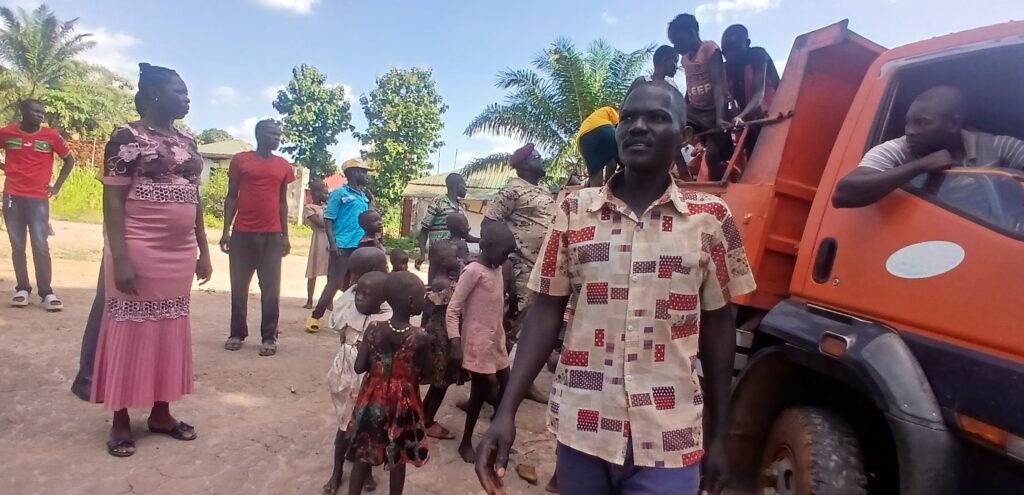Eighty-nine internally displaced persons (IDPs) who were trapped in forests following violence in their area arrived in Yambio on Tuesday after spending months hiding in the bush and surviving on wild fruits. The group fled their homes after violent clashes in Nadiangere Payam earlier this year.
The displacement occurred after President Salva Kiir removed former governor of Western Equatoria State Lt. Gen. Alfred Futuyo Karaba in February, triggering fighting and fear among civilians.
State Minister of Local Government and Law Enforcement James Severino Morris expressed deep concern about the returnees’ condition during their reception.
“We’ve received about 89 IDPs—mostly women, children and elderly persons—from Nadiangere,” he said. “Another group of around 40 is expected from Bangasu Payam. In places like Rirangu and Mboringa, more people continue to arrive from the forest.”
Morris described the ordeal as heartbreaking.
“These citizens were trapped in the jungle for over two months, surviving only on wild fruits and mangoes. Now that mangoes are out of season, those still on the way are at even greater risk.”
He appealed for urgent humanitarian support, including food, medical care and shelter.
Thomas Seringa Paul, acting chairperson of the Relief and Rehabilitation Commission in Western Equatoria, confirmed the dire state of the new arrivals.
“Of the 89 IDPs we’ve received so far, 90% are children between the ages of 5 and 18. They lived in the bush for nearly five months with no access to food, medicine or shelter.”
Apai Michael Mathew, a displaced teacher from Nadiangere, shared his experience:
“For nearly five months, we had nothing—no food, no medicine. We lost two children to hunger and illness during the journey.”
Charles Miwamote, a member of Parliament for Nadiangere, was also among the displaced.
“I arrived two weeks before the rest. We suffered the same—no clean water, no food, no medicine. Even now, those who’ve arrived are still in desperate need.”
He urged both the government and humanitarian agencies to act swiftly:
“These people have walked long distances through dangerous terrain. They need urgent support—especially clean water, food and health care—before more lives are lost.”




